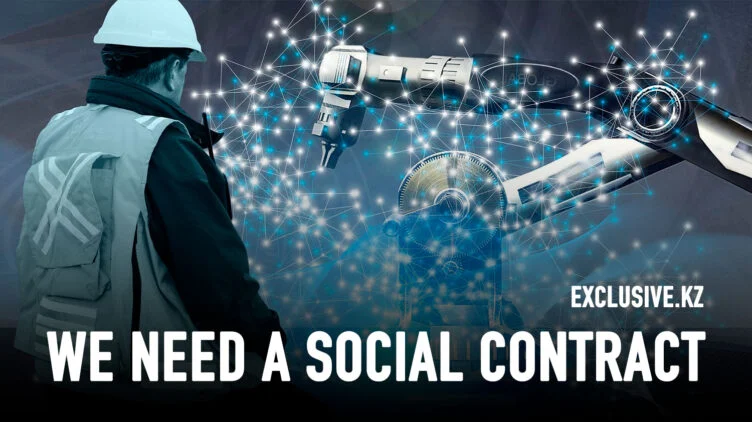Restoring Lost Livelihoods Is Essential for Saving Democracy

In the decades between 1950 and 1970, many young Americans without college degrees embarked on manufacturing careers in which they acquired blue-collar skills and earned middle-class incomes and status. Over the next 50 years, however, millions of those jobs would be lost to developments supported by public policy, and the same policy would eschew government interventions to address the plight of displaced workers.
Because these workers’ specialized skills were not transferable across industries, about two-thirds ended up in low-skill, dead-end jobs paying low wages, and about one-third left the labor force altogether. These trends resulted in lower incomes, broken marriages, widespread alcohol and drug addiction, increased rates of suicide, and falling life expectancy. Moreover, since displaced workers were concentrated in non-urban communities, mostly in the Midwest and southeastern United States, their regional economies declined, too.
Such is the legacy of the neoliberal era, which championed free-market policies and a libertarian ideal of heroic individualism. Since workers without a college degree constitute around 62% of the US labor force, the permanent elimination of blue-collar jobs was not just some marginal loss; it has affected a massive share of the population, whose lost livelihoods and depressed living standards are the price paid for improved productivity. Americans with college degrees have prospered, and a few have gained massive wealth at their fellow citizens’ expense. This unjust outcome has provoked a backlash against American democracy and is main cause of democracy’s contemporary decline. President Donald Trump owes his electoral success to workers without college degrees who feel betrayed by the system.
The onset of AI will make this problem much larger. Current research suggests that 25% of all American jobs may soon be disrupted by AI, implying profound labor-market changes.

Democracies rarely survive when large segments of the electorate suffer a loss of livelihood so that others can benefit. Countries that have avoided such unjust outcomes have done so by restoring what workers have lost. As the Scandinavian, German, and Japanese experiences show, the issue is not just about compensation. Displaced workers do not want to become a burden on the public purse, but they do want society to recognize that they are innocent victims of a process for which they are not responsible. What they seek, ultimately, is a restoration of dignity and quality of life.
Thus, as I show in my forthcoming book, Private Power and Declining Democracy: How to Make Capitalism Support Democracy, restoring American democracy requires restoring American livelihoods as a matter of public policy. We need to establish a social contract that includes a legal obligation to restore any loss of human capital and degraded livelihood caused by public policy, or by private-sector action supported by public policy.
This new policy would not apply to most unemployment, which results from voluntary or cyclical job transitions. Rather, it would address structural unemployment (when decisions supported by public policy eliminate the need for certain skills), by helping workers acquire new skills and restart their labor-market careers. But why should a democratic society adopt such a policy and incur such expenses? Why should individuals not be held fully responsible for their economic fate?
To address these questions, imagine that we had perfect foresight and could anticipate the consequences of any particular policy. In assessing the neoliberal policy that prevailed from 1980 to the present, we would have seen, 45 years ago, that workers without a college education would suffer great losses. But if that had been known, those workers, who constitute a majority of voters in all democracies, would have ensured that the policy was blocked, depriving the rest of society of the productivity gains that it otherwise would have enjoyed. To secure the policy’s implementation, those who stood to benefit the most would have needed to offer workers without a college education a plan, enacted into law, for sharing the future gains.
Since such foresight is impossible, we must mitigate the risk that a policy will produce a grossly unequal outcome by establishing an insurance policy to guarantee innocent market participants that they will not be harmed by changes in economic or technology policy. This would be a new form of insurance, since the existing unemployment insurance only partly addresses the problem, is restricted to compensating for the loss of wages, and lasts just 26 weeks.
While economists long ago developed the compensation principle – the idea that winners should be required to compensate those harmed by a policy – they never did offer a compelling economic reason why compensation should be paid. By contrast, a livelihood-restoration policy replaces the compensation principle and is justified by the political aim of maintaining democracy, not by the economic goal of efficiency gains.
An effective livelihood restoration policy has eight components. The first is counseling and selection to determine a worker’s suitability to acquire new skills or move to a different industry; if the worker is too old to be retrained, dignity in retirement is the only remedy. Second, the policy needs to support retraining programs, whether through community colleges, technical schools, local vocational institutions, or apprenticeships with former employers or other firms.
Third, the policy should cover family living expenses over the course of training. Fourth, it should offer family counseling as needed during the transition. Fifth, it should provide medical coverage, either by maintaining the health plan from the prior employer or through a new one. Sixth, it needs to cover childcare costs. Seventh, it may need to cover moving expenses if a family relocates to take a better job elsewhere. Lastly, it should offer an employment subsidy of 20% of the market wage for one year after completing retraining, to incentivize fresh hiring.
Although livelihood restoration is justified mostly on political grounds, it would also have economic benefits, because it would improve workers’ morale, dedication, and contributions to improved efficiency and on-the-job innovations.
To be sure, the success of such a policy may depend on improved labor-management relations. The US has had a long history of violent confrontations between unions and management. Yet it is easy to see how a more cooperative relationship would benefit both sides. One way to achieve this is to relax the existing restrictions on unionization and work toward a reformed labor movement that comprises a wider collection of organizations dedicated to offering workers social services and improving morale.
Tragically, the Trump administration will not be introducing any such policies. It is clearly dedicated to weakening democracy by transferring more wealth to the rich. But that should not stop us from developing the policies needed to strengthen democracy when we get the chance.
Copyright: Project Syndicate, 2025.





Все комментарии проходят предварительную модерацию редакцией и появляются не сразу.